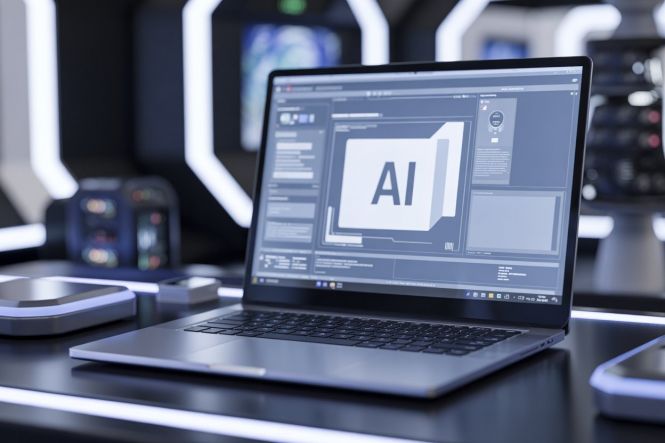 What are AI laptops (computers, PCs)? The basics
What are AI laptops (computers, PCs)? The basics
There is a lot of buzz about AI laptops (AI computers, AI PCs) heard here and there nowadays. Every major manufacturer seeks to design a line of machines that can carry this label, and wow its customers therewith. You have most likely heard about this new (well, not that new, actually) trend, and have probably been wondering what the fuss is about. This piece sums it up for you: we cover all the basics about AI laptops, from the time the term was coined (and by whom) through pros and cons to actual models that you can purchase either right now or in the near future. Interested? Read on, then.
Who invented AI laptops?
The subtitle above isn’t exactly correct, since it’s not the invention of such laptops per se but putting all the pieces together and marketing the new design that matters. From this point of view, the pioneer in this field is Intel: the company is credited with coining the term “AI PC” for its Core Ultra (Meteor Lake) chipset launch campaign in 2023. Soon, it was recognized industry-wide, and thus AI computers, laptops and desktops, became a thing.
What was, and is, behind the term? NPU, Neural Processing Unit, as part of the chipset. This component has pretty much one purpose: to boost all things AI that can be run locally.
What is the difference between regular laptops and AI laptops?
As the name suggests, AI laptops handle tasks delegated to artificial intelligence better, but the rift between a normal computer and that with “AI” in its name is actually deeper. Here’s the roundup of what AI laptops can do better:
- More efficient battery management. In most models, artificial intelligence keeps tabs on the power dials, ensuring longer battery life and socket-free work/fun.
- Adaptive user experience. This one’s from the booklets, and while it’s kind of misty, the point is that AI drives minor adjustments in your interactions with the system that are supposed to improve and streamline them.
- Job-specific tuning. We have regular gaming PCs and laptops, or machines for designers, but AI computers are supposed to move this dedication to the next level by optimizing everything that can be optimized.
- Integrated AI assistants. Again, this is something you can take advantage of on a regular laptop, but the service will likely be cloud-based, which is not as fast and secure as having the tasks executed locally.
- Security. Artificial intelligence aims to up the security of a device so that absolutely no wrongdoer can violate your personal privacy.
All things considered, faster operation and longer battery life seem to be the perks that really make the difference in the vast majority of use cases. The cons are the price and teething problems, which are bound to emerge in any product packing cutting-edge tech.
Looking for tools that can boost and optimize a regular PC? Here's the Informer's collection:
Informer - System optimization
Who makes and sells AI laptops now?
As mentioned above, all major players joined the race of AI computers for the mass market. The leader is probably Microsoft, with its family of Surface Copilot+ laptops, priced from $1,200 to $2,000+ (approximately, outside of sales). Lenovo, Samsung, Acer, Dell, HP, ASUS, LG, and, of course, Apple, all of them have an AI computer in their portfolios nowadays, equipped with NPUs and pre-installed artificial intelligence. Some makers go as far as to deploy their own AIs, while others stick with Microsoft’s Copilot. Plus, you can always mount a third-party LLM and have it functioning smoothly.
What’s your take on AI laptops? Share your opinion – or experience – in the comments below!




So, AI or BI or CI, since it is a void or a Black Hole, our data are in the hands of the Softies and Techies who an manipulate them in their own Wild Will.
But Microsoft WILL FORCE all PC user into that void by simple cutting the Arteries, not Veins, in the OS personality. Simply they will um-plug the cork and let the Froth of the Whiskey called older OS versions and store everything from OS, Updates, Upgrades, Installation and everything concerned with the OS and PC, up there in the Yonder, and compel us to use them. Use it or we throw you out! Just like MS Office 365. Even a very single period will be in possession of MS and Gates.
NOT A GOOD IDEA anyway.